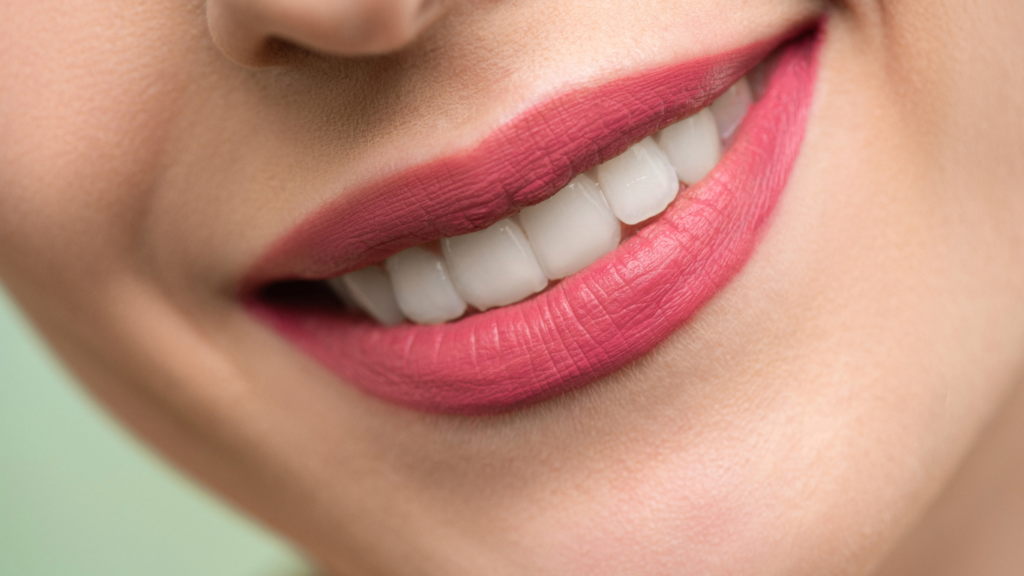Preventive Resin Restoration: A Guide to Healthy Teeth

Preventive resin restoration (PRR) is a dental treatment that protects teeth from cavities before they get worse. It’s a gentle way to keep your smile strong, especially for kids and teens with early signs of tooth decay. By applying a thin layer of resin to small grooves or weak spots, dentists stop cavities from growing without drilling much. This method is quick, painless, and saves money compared to fillings or crowns. Knowing about PRR helps you make smart choices for your dental care.
What Is Preventive Resin Restoration?
Preventive resin restoration is a dental fix for early decay or weak spots in teeth, often in kids or young adults. Dentists clean tiny grooves or pits, usually in back teeth, and fill them with a tooth-colored resin. This seals the area, stopping bacteria from causing cavities. Unlike traditional fillings, PRR needs minimal drilling, keeping more of your natural tooth. It’s done in one visit, takes about 20–30 minutes per tooth, and costs ₹1,500–₹3,000 in India (2025 rates). PRR is perfect for molars with deep grooves, protecting them for years with proper care.
Why Choose Preventive Resin Restoration?
PRR is a smart choice because it stops cavities early, saving you from bigger dental work later. It’s less invasive than fillings, preserving your tooth’s strength. The resin blends with your tooth color, so it looks natural. It’s also budget-friendly compared to crowns (₹5,000+) or root canals (₹10,000+). Kids benefit most, as their new teeth are prone to decay, but adults with healthy teeth can use it too. PRR promotes long-term oral health, reducing dentist visits and keeping your smile bright without stress.
Benefits for Kids and Teens
Kids and teens often get cavities because their molars have deep grooves where food sticks. PRR seals these spots, blocking bacteria. It’s painless, which calms young patients, and quick, fitting busy schedules. The resin lasts 5–7 years, protecting teeth during cavity-prone years. Parents save money, as PRR costs less than fillings. Regular brushing and checkups keep the restoration strong, helping kids avoid scary drills and bigger treatments down the road.
Advantages for Adults
Adults with early decay or weak enamel can benefit from PRR too. It’s a low-cost way to fix small problems before they need expensive treatments. The resin matches your teeth, so no one notices it. PRR is fast, letting you return to work or daily tasks right away. It also strengthens teeth, reducing cracks in molars. With good care, like avoiding hard foods and regular cleanings, adults can keep PRR intact for years, maintaining a healthy smile.
How Does Preventive Resin Restoration Work?
The PRR process is simple and stress-free. First, the dentist checks your teeth with a tool or X-ray to spot early decay. They clean the groove with a mild acid to prepare it, then apply a liquid resin that hardens under a special light. The resin bonds to the tooth, sealing it. No numbing is usually needed, and you’re done in under 30 minutes. You can eat soft foods right after. Regular checkups ensure the resin stays strong, keeping cavities at bay.
Step-by-Step Procedure
The dentist starts by examining your tooth for tiny pits or decay. They clean the area with a gel to roughen it slightly, helping the resin stick. Next, they brush on the resin, shaping it to fit the groove. A blue light hardens it in seconds. Finally, they polish the tooth to make it smooth. The whole process is quick, painless, and lets you leave with a protected tooth, ready to chew normally after a few hours.
Aftercare Tips
After PRR, brush twice daily with fluoride toothpaste and floss to keep the resin clean. Avoid sticky candies or hard nuts for 24 hours to let the resin set. Visit your dentist every six months to check the restoration. Chewing gum with xylitol can reduce bacteria. If you grind your teeth, ask about a nightguard to protect the resin. These simple steps ensure your PRR lasts 5–10 years, keeping your teeth strong and cavity-free.
Who Needs Preventive Resin Restoration?
PRR is ideal for anyone with early signs of decay or deep grooves in their molars. Kids aged 6–12 are prime candidates, as their new teeth are at risk. Teens with braces, where brushing is tricky, also benefit. Adults with healthy teeth but minor enamel issues can use PRR to avoid bigger fixes. It’s not for large cavities or cracked teeth, which need fillings or crowns. A dentist can check if PRR suits you, ensuring your teeth get the right care early.
Ideal Candidates
Kids with newly erupted molars (ages 6–12) are perfect for PRR, as their teeth have deep grooves prone to decay. Teens with early decay spots or braces, which trap food, are great fits too. Adults with small pits or weak enamel, but no major damage, can use PRR to stay ahead of cavities. Your dentist will X-ray your teeth to confirm PRR is enough, ensuring it’s the best fix for your smile.
When PRR Isn’t Suitable
PRR won’t work for big cavities, cracked teeth, or severe decay, which need fillings or root canals. If your enamel is too thin or you have gum disease, other treatments come first. PRR is also less effective for front teeth, where looks matter more, as resin may not blend perfectly. Your dentist will suggest alternatives like sealants or crowns if PRR isn’t right, keeping your oral health on track.
Cost of Preventive Resin Restoration in India
In 2025, PRR costs ₹1,500–₹3,000 per tooth in India, depending on the city and clinic. Metro areas like Delhi or Mumbai charge ₹2,500–₹3,000, while smaller towns may start at ₹1,500. Prices include the exam, cleaning, and resin application. Dental insurance often covers PRR for kids, but check your plan. Compared to fillings (₹2,000–₹4,000) or crowns (₹5,000–₹15,000), PRR is a budget-friendly way to prevent bigger expenses, making it a smart choice for families.
Factors Affecting Cost
The price of PRR depends on the dentist’s experience, clinic location, and number of teeth treated. Metro clinics with advanced tools charge more. If X-rays (₹300–₹500) are needed, costs rise. Treating multiple teeth in one visit may lower the per-tooth rate. Some clinics offer packages for kids, like ₹4,000 for two teeth. Always ask for a full quote upfront to avoid surprises and compare clinics for the best deal.
Insurance and Payment Options
Many dental plans in India cover PRR for kids under 18, often at 50–80% of the cost. Adults may get partial coverage if PRR is deemed preventive. Check with your insurer for details. Clinics accept cash, cards, or UPI, and some offer EMIs for treatments over ₹5,000. Government schemes like Ayushman Bharat may cover PRR in select hospitals. Ask your dentist about payment plans to make PRR affordable.
Comparing PRR to Other Dental Treatments
PRR stands out for its simplicity compared to other fixes. Dental sealants, which coat teeth to prevent decay, are cheaper (₹800–₹1,500) but less durable, lasting 2–3 years. Fillings (₹2,000–₹4,000) treat existing cavities but remove more tooth. Crowns (₹5,000+) are for major damage, while root canals (₹10,000+) fix deep decay. PRR bridges the gap, stopping early decay without heavy drilling. It’s a middle ground that saves teeth and money, ideal for early intervention.
PRR vs. Dental Sealants
Sealants are thinner coatings applied to healthy teeth to block grooves, costing ₹800–₹1,500. They wear off in 2–3 years and don’t fix decay. PRR, at ₹1,500–₹3,000, fills early decay spots with stronger resin, lasting 5–10 years. Sealants suit kids with perfect teeth; PRR is for those with minor issues. Your dentist can decide which fits based on your tooth’s condition, ensuring long-term protection.
PRR vs. Traditional Fillings
Fillings treat bigger cavities by removing decayed parts and filling with amalgam or composite (₹2,000–₹4,000). They need more drilling, weakening the tooth. PRR, at ₹1,500–₹3,000, fixes early decay with minimal drilling, preserving tooth strength. Fillings last 7–10 years but are noticeable if metal. PRR’s resin blends naturally. PRR is best for small issues, while fillings handle larger cavities, so your dentist will pick the right one.
Tips for Maintaining PRR Results
To keep PRR strong, brush twice daily with fluoride toothpaste and floss to remove food from grooves. Avoid chewing ice or hard candies, which can chip the resin. Visit your dentist every six months to check for wear. Use a soft toothbrush to prevent scratching the resin. If you play sports, wear a mouthguard to protect your teeth. These habits extend PRR’s life to 10 years, keeping your teeth cavity-free and your smile confident.
Daily Oral Hygiene
Brush for two minutes morning and night with a soft-bristled brush and fluoride toothpaste to clean around the resin. Floss daily to clear food from between teeth, where PRR is often placed. Rinse with a fluoride mouthwash to strengthen enamel. Avoid sugary drinks like soda, which feed bacteria. These simple steps keep the resin intact and your teeth healthy, reducing the need for future dental work.
Regular Dental Checkups
See your dentist twice a year to monitor your PRR. They’ll check for resin cracks or decay using X-rays if needed (₹300–₹500). Cleanings remove plaque that brushing misses. If the resin wears, a quick touch-up (₹500–₹1,000) fixes it. Regular visits catch issues early, ensuring PRR protects your teeth for years and saving you from costly repairs down the line.
Finding a Dentist for PRR in India
Look for a dentist with PRR experience, ideally a pediatric specialist for kids. Check online reviews on Practo or Justdial for clinics in your city. Ask about their PRR process and costs upfront. Metro areas like Bangalore or Chennai have many options, but small towns have skilled dentists too. Confirm they use quality resin and follow hygiene standards. A consultation (₹200–₹500) helps you decide if PRR is right, ensuring you get top care for your smile.
Choosing a Qualified Dentist
Pick a dentist with a BDS or MDS degree and PRR training. Pediatric dentists are great for kids, as they’re gentle and kid-friendly. Check clinic ratings on Google or Practo for feedback on PRR results. Ask friends for recommendations. Visit the clinic to see if it’s clean and uses modern tools. A good dentist explains the procedure clearly and answers questions, making you feel confident about your PRR treatment.
Questions to Ask Before PRR
Before agreeing to PRR, ask: How many PRRs have you done? What resin do you use? Is my tooth suitable for PRR or another treatment? What’s the full cost, including X-rays? How long will it last? Can I see before-and-after photos? These questions ensure you’re in safe hands. A trustworthy dentist will explain everything simply and provide a written estimate, helping you plan your dental care without surprises.



